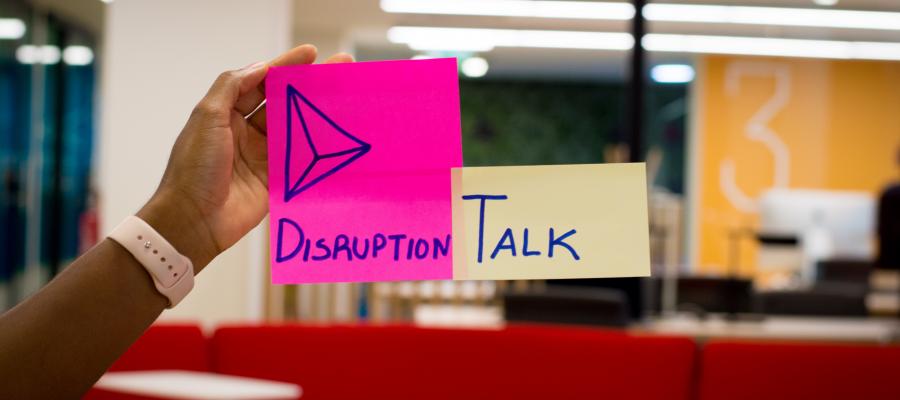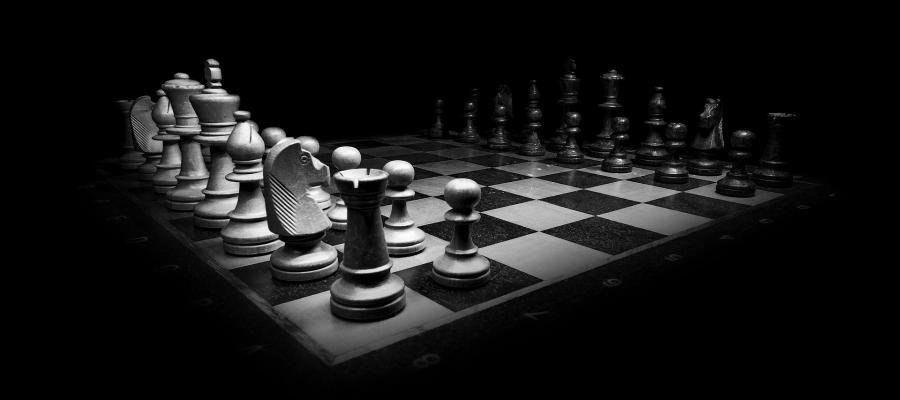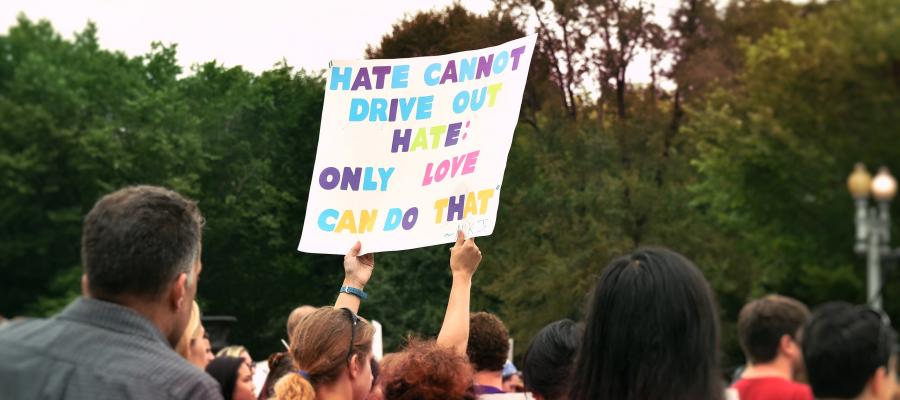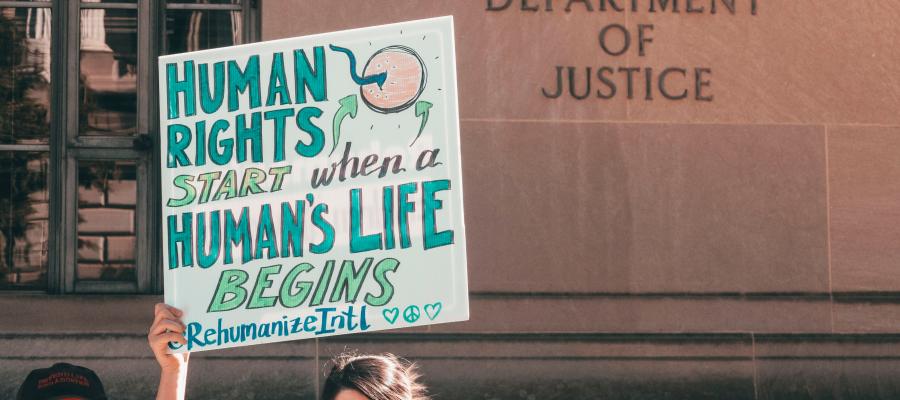Why do some people have a strange desire to do weird things for no (good) reason? There's something fascinating about kids who eat laundry soap as part of a “challenge,” or people who deliberately... Read more
Cracking Down on Disinformation
14
May 2021
In a world of fake news and disinformation, how can anyone make informed political decisions? Is it possible for us all to come together as a nation if we can’t even agree on what’s true? This week, we’re thinking about Disinformation and the Future of Democracy.
Read moreWhat Montaigne Knew
23
Apr 2021
Are essays a good way to do philosophy? What if they’re full of digressions and contradictions? Could that possibly make them more philosophical, not less? This week we’re thinking about Michel de Montaigne and the art of the essay.
Read moreIs Meritocracy Possible? (A Solution)
16
Apr 2021
Last time, I asked: Given that meritocracy as traditionally defined is practically impossible, is there any point in appealing to it as a social ideal? This time, I suggest a way to peel off two ideas from the mirage ideal of meritocracy that might actually be feasible and worth striving for.
Read moreWhat Makes A Man?
19
Mar 2021
Does masculinity need a makeover for the 21st century? Should your gender matter to who you are as a person? Why think there’s just one thing it means to be a man? This week on Philosophy Talk, we’re discussing masculinity and what makes a man.
Read more#FrancisOnFilm: Judas and the Black Messiah
08
Mar 2021
Judas and the Black Messiah tells the story of the FBI murder of Black Panther Fred Hampton, aided by informant William O’Neal. The film bears its theme in the title: betrayal. But what exactly is betrayal? And what is its relation to trust, loyalty, and promises?
Read moreReplacing Freud
24
Feb 2021
What’s the latest scientific insight about unconscious beliefs, desires, and motivations? Do contemporary experimental psychologists do any better than Freud? Could anyone do worse? On this week’s show we’re asking: What has replaced Freud?
Read more#FrancisOnFilm: The Mole Agent
05
Feb 2021
The Mole Agent is a charming documentary about a private investigator hired to find out whether elder abuse is happening at a nursing home in Chile. At the heart of the film is a deception, which raises questions about trust beyond the question whether lies can ever be justified by good intentions.
Read moreWhat Tech Says
29
Jan 2021
Are tech companies really “making the world a better place”? Isn’t “disruption” just code for circumventing legal regulations and ignoring labor laws? Does Silicon Valley really believe its own hype? On this week's show we’re thinking about “The Rhetoric of Big Tech.”
Read moreIs Meritocracy Possible? (Pt. I)
22
Jan 2021
Modern economic life—where people have careers, advancements, successes, and failures—will always end up failing to be meritocratic, as traditionally defined. Given that, is there any point to appealing to meritocracy as a social ideal? And if not, why do people find this ideal so appealing?
Read moreThe Mathematics of Democracy
15
Jan 2021
Shouldn’t everybody have an equal vote? Isn’t majority rule just an excuse to keep minorities down? Is a truly fair democracy even possible? And how do we decide what counts as fair in the first place? This week on Philosophy Talk, we’ll explore answers to these questions!
Read moreWhen Do False Beliefs Exculpate? (Pt. II)
08
Jan 2021
In my last pandemic puzzle, I posed the question: When do false beliefs exculpate? I floated a principle—the false belief criterion of exculpation—that tried to explain when false beliefs make someone not guilty of a moral offense, but it didn't work in every case. So how do we solve this puzzle?
Read moreGaining Knowledge without Learning
01
Jan 2021
You can come to know something by observation, by testimony, or by working it out in your head. But there’s another way of knowing something that doesn’t involve learning because it doesn’t involve coming to know a pre-existing fact. This way of knowing arises when you do something intentionally.
Read more2020: The Year in Poetry
25
Dec 2020
As 2020 draws to a close, we take a look back at the year that has been. One good thing happened this year: the Nobel Prize in Literature was awarded to Louise Glück. Tune into this week's show, "The Examined Year: 2020" to hear some of her poems, including my all-time favorite, “Ithaca.”
Read moreAre “Human” Embryos Human?
17
Dec 2020
Opponents of abortion argue that because embryos belong to our species, they are human embryos, and are therefore human beings. And as killing innocent human beings is wrong, abortion is wrong. But is it correct to say that human embryos are human beings?
Read moreFinding Minds in a Material World
11
Dec 2020
How did minds first evolve out of matter? Could consciousness have evolved more than once? How do we tell which living things have minds? Is there something it’s like to be a crab and live a crab's life? This week we’re thinking about “Minds and Matter.”
Read moreWhen Do False Beliefs Exculpate? (Pt. I)
03
Dec 2020
Another month of pandemic... and another philosophical puzzle from me to distract you from it. This time, the puzzle concerns beliefs and specifically whether acting under the guidance of false beliefs can exculpate someone of a moral wrongdoing.
Read moreShould the Arts Be for All?
27
Nov 2020
Should artists make artworks that are easy to understand? Or should there be challenging artworks out there, but free education to help us understand them? What, if anything, is the value of difficult paintings, poems, and novels? This week we’re thinking about “The Arts for All.”
Read moreSay it Enough, They’ll Believe It
20
Nov 2020
If you repeat something often enough, people are more likely to believe it. That's a phenomenon called the illusory truth effect. It can happen with smart people, and even when the statement is already known to be false. So why does repeating something make people more likely to believe it?
Read moreWhose Fault Is It Anyway?
14
Nov 2020
Who’s to blame for big problems like racism, factory farming, or climate change? Isn’t it time we held governments and corporations accountable? Or would that just let individuals off the hook? This week we’re talking about collective responsibility.
Read moreWhy We Argue About Fiction
02
Nov 2020
From an evolutionary standpoint, it’s puzzling that humans consume fiction. Why waste valuable cognitive resources on information we know is unreal? But it is even more puzzling that we argue about such fictions! I explore some reasons why we do this.
Read moreWhat Would We Lose If We Had No Art?
27
Oct 2020
Think about the art you’ve enjoyed in your life: the novels, the television, the music, the poetry, the sculpture, the paintings—the list goes on. Now try to imagine a scenario in which none of this art had ever been made. What would we lose in a world like this?
Read moreWhy Games Matter
23
Oct 2020
Do games help us form social bonds and build important life skills, or are they just a pleasant way to escape the daily grind? Worse yet, could playing games make us lazy and antisocial? These are some of the questions we’re asking in this week’s show, What’s in a Game?
Read moreReasons to Hate
18
Oct 2020
Why is there so much hate in the world? Is hatred ever morally justified? Or does hate just breed more hate? What exactly is hatred anyway? These are some of the big questions we’re tackling on this week’s show, Why We Hate.
Read moreAbortion and Humanity
12
Oct 2020
In my last blog I explained how some opponents of abortion misappropriate my work on dehumanization, and why their argument doesn’t work. But if we understand dehumanization as the denial that some human beings are really human, this conception seems to serve the anti-abortion cause much better.
Read moreSkepticism and Trust in Science
06
Oct 2020
Why do so many people believe in conspiracy theories? Do we need to evaluate the evidence for ourselves, or should we just trust the experts? This week on Philosophy Talk, we’re discussing science and skepticism, and the role that trust plays in deciding what's true.
Read more- ‹ Previous
- 3 of 39
- Next ›





















